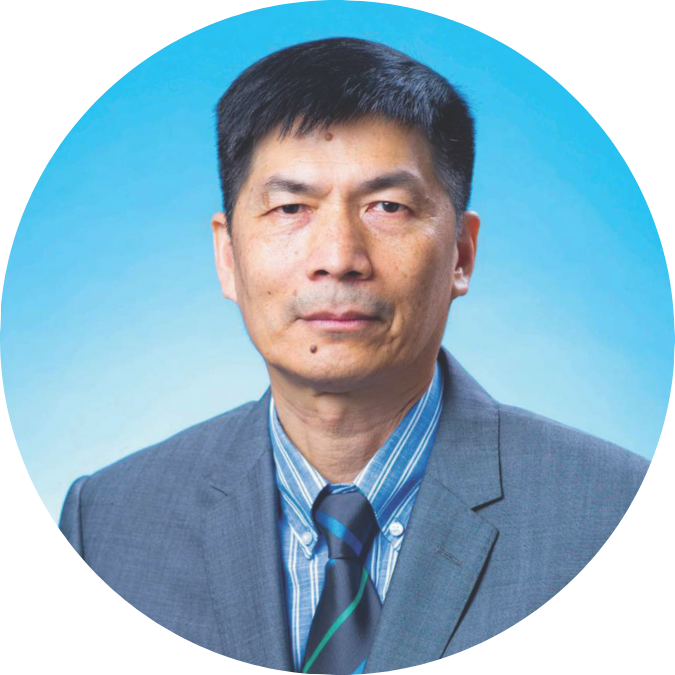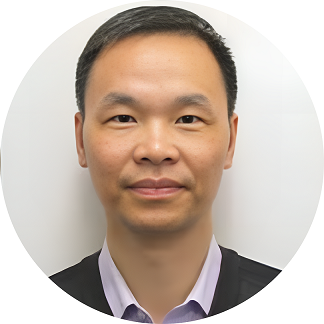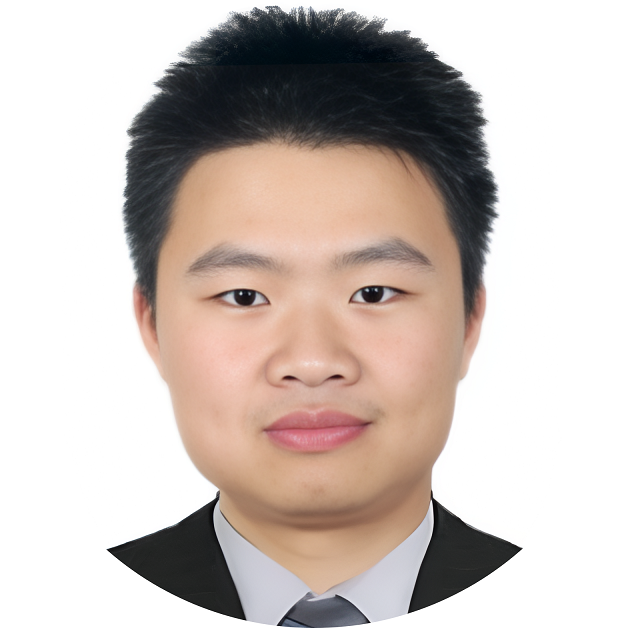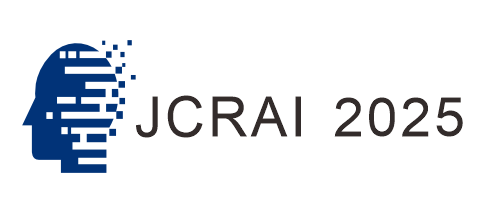Keynote Speakers
Keynote Speaker Ⅰ

Prof. Youfu Li
IEEE Fellow
City University of Hong Kong, China
Brief Introduction: You-Fu Li received the PhD degree in robotics from the Department of Engineering Science, University of Oxford in 1993. From 1993 to 1995 he was a research staff in the Department of Computer Science at the University of Wales, Aberystwyth, UK. He joined City University of Hong Kong in 1995 and is currently professor in the Department of Mechanical Engineering. His research interests include robot sensing, robot vision, and visual tracking. In these areas, he has published over 400 papers including over 200 SCI listed journal papers. Dr Li has received many awards in robot sensing and vision including IEEE Sensors Journal Best Paper Award by IEEE Sensors Council, Second Prize of Natural Science Research Award by the Ministry of Education, 1st Prize of Natural Science Research Award of Hubei Province, 1st Prize of Natural Science Research Award of Zhejiang Province, China. He was on Top 2% of the world’s most highly cited scientists by Stanford University, 2020- and Career Long. He has served as an Associate Editor for IEEE Transactions on Automation Science and Engineering (T-ASE), Associate Editor and Guest Editor for IEEE Robotics and Automation Magazine (RAM), and Editor for CEB, IEEE International Conference on Robotics and Automation (ICRA). He is a fellow of IEEE.
Speech Title: Visual sensing and tracking in robotics
Abstract: Visual sensing and tracking are important for engineering applications including robotics. In this talk, I will present our research in visual sensing for automated 3D vision in general and for motion tracking for robotics in particular. I will present the issues related to robot vision, with different approaches in our investigation reported. These include passive and active vision approach to visual sensing. For robotic applications, visual sensing in 3D is often needed, but the calibration remains tedious and inflexible with traditional approaches. To this end, we have investigated the relevant issues for different types of visual sensing systems. A flexible calibration method desires the vision system parameters to be recalibrated automatically or with less operator interference whenever the configuration of the system is changed, but practically this is often hard to achieve. Various attempts were made in our previous works to enhance the flexibility in the vision system calibration. I will present some them including the work on gaze tracking where the issues in the modeling and calibration are addressed with our novel method developed.
Keynote Speaker Ⅱ

Prof. Huiyu Zhou
University of Leicester, United Kingdom
Brief Introduction: Prof. Huiyu Zhou received a Bachelor of Engineering degree in Radio Technology from Huazhong University of Science and Technology of China, and a Master of Science degree in Biomedical Engineering from University of Dundee of United Kingdom, respectively. He was awarded a Doctor of Philosophy degree in Computer Vision from Heriot-Watt University, Edinburgh, United Kingdom. Prof. Zhou currently is a full Professor at School of Computing and Mathematical Sciences, University of Leicester, United Kingdom. He has published over 550 peer-reviewed papers in the field. He was the recipient of "CVIU 2012 Most Cited Paper Award", “MIUA 2020 Best Paper Award”, “ICPRAM 2016 Best Paper Award” and was nominated for “ICPRAM 2017 Best Student Paper Award” and "MBEC 2006 Nightingale Prize". Prof. Zhou serves as the Editor-in-Chief of Recent Advances in Electrical & Electronic Engineering and Associate Editor of IEEE Transaction on Human-Machine Systems, IEEE Journal of Biomedical and Health Informatics, Pattern Recognition, Scientific Reports, Security and Safety, Machine Intelligence Research, PeerJ Computer Science and IEEE Access, and Area Chair of ICRA, IJCAI and BMVC. He is one of the Technical Committee of “IEEE Cognitive and Development Systems”, “Information Assurance & Intelligent Multimedia-Mobile Communication in IEEE SMC Society”, “Robotics Task Force” and “Biometrics Task Force” of the Intelligent Systems Applications Technical Committee, IEEE Computational Intelligence Society. He has given over 150 invited talks at international conferences, industry and universities, and has served as a chair for 100 international conferences and workshops. His research work has been or is being supported by UK EPSRC, MRC, EU, Royal Society, Leverhulme Trust, Puffin Trust, Alzheimer’s Research UK, Invest NI and industry. Homepage: https://le.ac.uk/people/huiyu-zhou
Speech Title: Artificial intelligence in telecommunication – Past, Present and Future
Abstract: Artificial intelligence (AI) has been pervasive in many areas of recent scientific and technological development since 2010. Recent research progresses and wide applications include ChatGPT, Claude and Sora,which significantly demonstrate the power of generative artificial intelligence and other AI tools. However, it is not clear how to utilise the available AI technologies for improving quality of various services and products. In this talk, we will start from an example of using ChatGPT to explore the capabilities of AI in telecommunication research. We will discuss how AI helps and supports the development of 5G/6G systems in recent years. Afterwards, we discuss several well-recognised AI systems available to use online, before we explore the missing aspects in those AI systems/tools. Finally, we elaborate the needs of collaboration over different countries.
Keynote Speaker Ⅲ

Prof. Lei Zhang
Northwestern Polytechnical University, China
Brief Introduction: Prof. Lei Zhang received his bachelor's and doctoral degrees from the School of Computer Science, Northwestern Polytechnical University in 2012 and 2018, respectively. He is mainly engaged in teaching and research in the fields of image processing and machine learning. In recent years, he has published more than 90 papers in top journals and conferences in the field of computer vision, such as IJCV, IEEE TIP, IEEE TGRS, IEEE TNNLS, IEEE TCSVT, IEEE TCI, CVPR, ICCV, AAAI, ECCV, ICME, etc.
Speech Title: Diffusion Model based Multi-object Image Dataset Generation Technology
Keynote Speaker Ⅳ

Prof. Tao Zhou
North Minzu University, China
Brief Introduction: Tao Zhou is currently a professor in School of Computer Science and Engineering, North Minzu University, Yinchuan, China. He is also a Ph.D. Supervisor in Institute for Medical Informatics, University of Huaqiao, Fuzhou, China. He obtained his PhD degree from Computer Science and technology, Northwestern Poly-technology Univ. in China. he has been a visiting scholar in The University of Leicester, UK. Chinese University of Hong Kong, HK, ShanDong University, China. His research interests include pattern recognition, machine learning, machine vision, medical image analysis. He has published over 220 academic papers in top journal or conference, such as Information Fusion, Applied Soft Computing, CIBM, CMPB, BSPC, Acta Electronica Sinica, et. al., 3 ESI Papers. he has published 3 books, Furthermore, he has obtained 6 authorized patents. He served for the NCIG2020,ICIG2021,ICIGP 2022 & IFSP2022,ICDIP2022 as Technical Co-Chair or Publicity Co-Chair.
Speech Title: From the Prior to the Depth: Research on Multimodal Medical Image Fusion Methods
